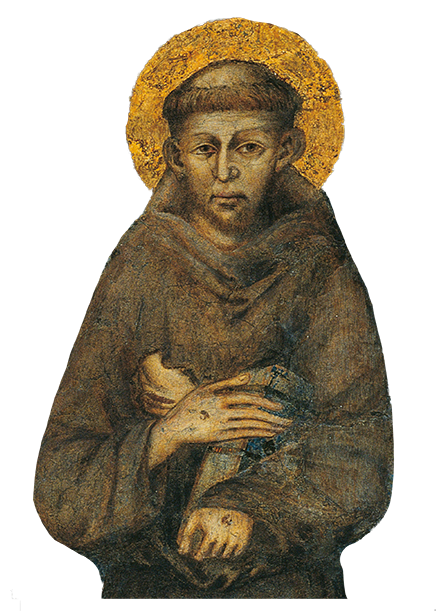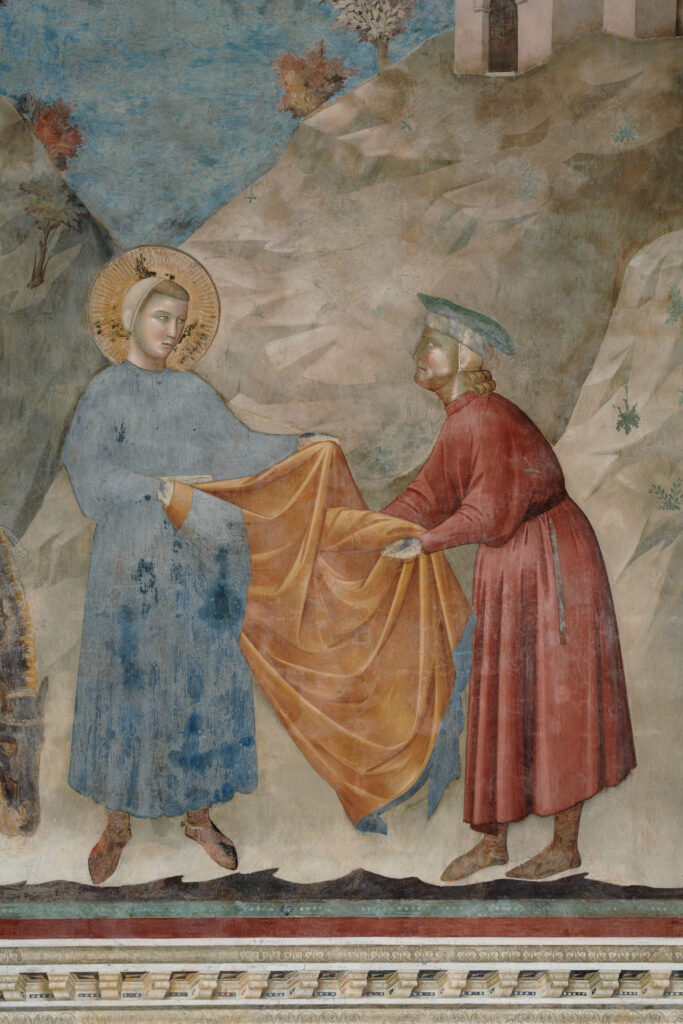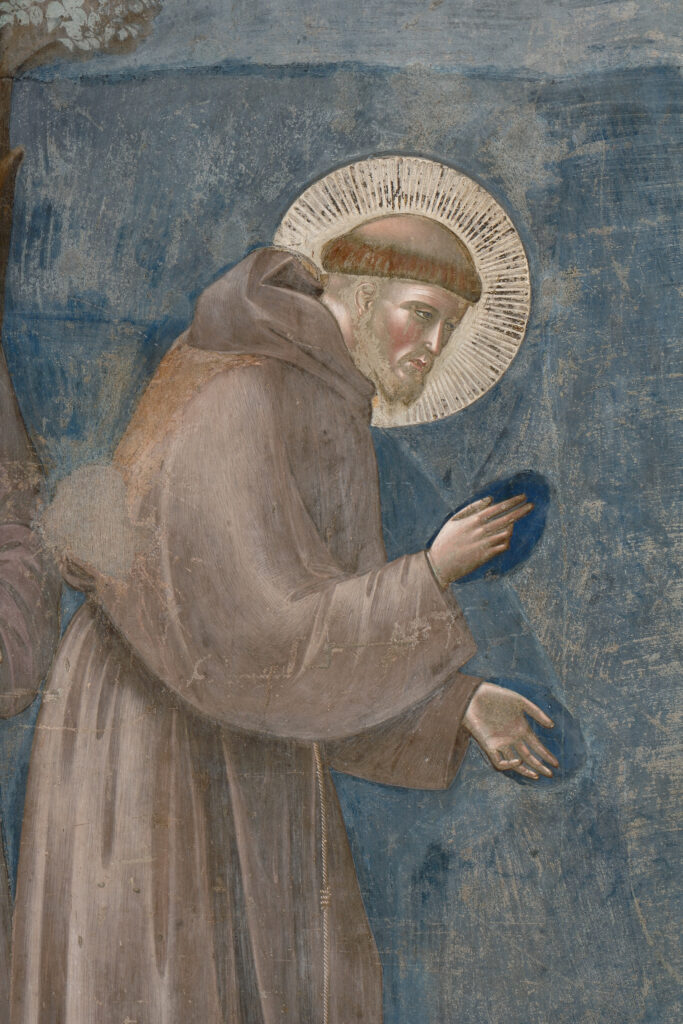
A Life of Faith and Renewal
Francis of Assisi, born Giovanni di Pietro di Bernardone (Assisi, 1181/1182 – Assisi, October 3, 1226), was, at his core, a man of God. His life, fascinating and full of dramatic turns, was an extraordinary journey of transformation and courageous choices. Initially driven by personal ambitions, Francis embarked on a path that led him to discover the true meaning of existence, ultimately becoming a man of poverty, humility, and profound fraternity.
His story is marked by pivotal encounters that shifted the focus of his life from himself to others. After his conversion, Francis, known as “Brother Francis,” dedicated himself entirely to others: to the Lord Jesus Christ, whom he loved with all his heart; to the brothers who shared the evangelical way of life with him; and to the men and women—both simple and learned, poor and wealthy—whom Providence placed along his path.
As a young man, Francis dreamed of becoming a knight and achieving glory and honor. However, his life changed radically after serving lepers—an experience he recounts in his Testament—and after encountering Christ in a new and personal way in the crumbling chapel of San Damiano near Assisi. In an extraordinary act of boldness, Francis renounced his wealthy family, publicly stripped himself of his garments and privileged status before his father and the bishop of the city, and chose a life of penance and conversion.
Over time, a small group of companions joined Francis, inspired by his desire to live the Gospel. This first group of 12 friars received oral approval of their way of life from Pope Innocent III in Rome in 1209. Together, they worked humbly alongside the poor to earn their livelihood, lived in simple huts borrowed from ecclesiastical or lay landowners, and devoted their days to prayer, praise, and exhorting people to recognize God’s love in their lives and live according to His will.
As the years passed, the fraternity grew rapidly, spreading throughout Europe and even into the Middle East. Francis became universally recognized as a man of God, and the friars were respected by clergy and laypeople alike for their simple lives and sincere devotion. Francis also stood out as a tireless promoter of peace and reconciliation, working to heal divisions and family feuds that tore apart Italian cities.
Led by Clare of Assisi, women also embraced Francis’s Gospel-inspired way of life, forming the Second Franciscan Order. Similarly, laypeople who wished to follow his spirituality without leaving their families or marriages founded the Third Franciscan Order, now known as the Secular Franciscan Order. These groups shared the same spirituality of simplicity, poverty, and trust in Providence that characterized Francis and the friars.


In the final years of his life, Francis faced personal challenges, including fragile health due to his harsh penances and frequent fasting, as well as tensions within the growing fraternity. At the request of the Papacy and in light of the rapid expansion of the Order, Francis drafted a more structured rule in 1223, taking into account the requirements of canon law at the time. Although he struggled with this evolution, fearing it might compromise the evangelical ideal he had embraced through divine inspiration, Francis accepted it with humility.
A defining moment came in September 1224, when Francis received the stigmata of Christ at La Verna. This profound experience revealed to him that God did not ask him to fight for his ideals but to entrust his life and insights entirely to the Church and the fraternity. Only in this way, he realized, could his mission bear authentic fruit in the spirit of the Gospel.
After receiving the stigmata, Francis wrote the Canticle of Brother Sun in 1225, a hymn of praise to God through all creation. This text is recognized as the first masterpiece of Italian literature.
In 1226, as his health deteriorated, Francis passed away on October 3 at the Porziuncola in Santa Maria degli Angeli, singing and welcoming “Sister Death.” He entrusted himself completely to God and blessed all the friars, both present and absent, saying with great freedom: “I have done my part; may Christ teach you to do yours.”
